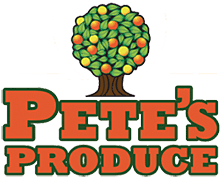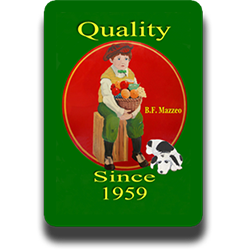How do you define success? The answer and ingredients are as unique as the women profiled on the pages within The Packer's 15th annual Women in Produce issue, honoring eight industry leaders playing pivotal roles in the success of their own organizations as well as supporting the future of agriculture, embracing crazy big ideas, having a positive impact and lifting up farmers and the fresh produce industry as a whole.
This year's honorees are moving the industry forward and inspiring future generations to do the same.
Happy Dirt is a company on a mission to support organic farmers and increase consumer access to sustainably grown food. The company's CEO and co-founder, Sandi Kronick, has said the “secret sauce of organic farming is caring about that longer view and investing in resiliency.”
For more than 20 years, Kronick has done just that in her leadership role at the company she co-founded. To learn more about why Kronick still loves her work after two decades in the organic produce industry, The Packer recently connected with her on Zoom.
The Packer: Supporting organic farmers and increasing consumer access to sustainably grown food are central to Happy Dirt's mission — a mission you've said was built to adapt. How has your mission evolved since co-founding the company, and what makes you most proud of where the company is today?
Kronick: Most importantly, what hasn't changed — and is really key to our business success — is our commitment to farmers, including having farmers as part-owners in the company. I'm so proud of how that has been a key to our longevity. Figuring out how to lift up the farmers and center their own sustainability — not just financially, but also their quality of life — has been enormously rewarding for us.
What has evolved is that we started with a naive, humble attempt to build up a local and organic supply chain by providing the infrastructure for then tobacco-dependent rural economies in North Carolina because of the decline of tobacco in the late '90s and early 2000s.
But in 2007, somebody called from the Massachusetts area and said, “We'd like to start buying sweetpotatoes from you.” And my first thought was, we're just a local company. We only work with local farmers and only sell to local customers.
It was a pivotal moment for me as a businessperson. I thought, why are we setting our sights on just a local footprint? We started doing freight and then rebranded the company in 2019. A big part of that strategy is prioritizing farmers' wellness and being a farmer-focused middleman while advocating for organics in the larger market supply chain.
We wanted to keep growing the success, stability and scalability of great farmers from elsewhere. It might not be local to us, but we're building up a local organic food system and supporting family farmers and their ability to serve their regional communities as well.
What is a key lesson you've learned as co-founder and CEO of Happy Dirt, and how has it influenced your leadership?
I had never taken a business class in my life before I started this company — and at that time, the term “impostor syndrome” didn't exist.
I look back now and realize how helpful it was that I had a certain sense of naivety and optimism. I was young. I didn't have children or a mortgage. I could work at 2 a.m. driving a truck around the state. There were so many aspects of that kind of youthful optimism that really fueled my desire to see if this thing was ever going to work and just kind of let it grow organically by building collaborative partnerships among farmers and customers alike.
So, I would say that a key lesson was accepting a certain degree of boldness as an actual business strategy and embracing our ability to really have an impact. It's not just a commitment; it's a compulsion to know that we are having a very positive impact on farmers and on the market.
The fear of failing farmers has been a very helpful business strategy for me because it's not just my career or our staff's careers on the line. Our farmers aren't only making financial investments; they're investing in hope for a successful future.
What keeps you up at night and what gets you up in the morning to embrace another day on the frontlines of organic farming?
What gets me up in the morning is literally the staff here and the farmers. I cannot get over how much every single day is so rewarding. No one works harder than farmers, but the team here in this warehouse works so hard every day, and we love it. Building hope for farmers is definitely what motivates me every day.
What keeps me up at night? Climate change is very scary, and it's very imminent. We're dealing with it right now. The ability to address it in a holistic way is absolutely urgent.
The reality that farmers and farmland are endangered species is definitely something that keeps me up at night.
Happy Dirt was founded 20 years ago. If you could give 20-years-younger-you one piece of advice on leading a produce company, what would it be?
This would not be a problem for young entrepreneurs these days, but I would tell my 20-year-old self to take more photos and write as much down as you can! Some of our original farmers, who are no longer with us, had some of the most beautiful stories. I wish my younger self would've taken more time to document everything about farmers, as well as our own business journey in general. I started this company because I wanted to support farmers, but the company has been successful beyond my wildest dreams because the farmers decided to give me a chance.
More of The Packer's 2024 Women in Produce honorees:
- Frances Dillard, vice president of brand and product marketing, Driscoll's.
- April Flowers, marketing director, Lone Star Citrus Growers.
- Cynthia Haskins, president and CEO, New York Apple Association.
- Christine Moseley, founder and CEO, Full Harvest.
- Tara Murray, vice president of marketing, Fresh Innovations/Yo Quiero Brands.
- Julie Olivarria, vice president, produce, Sysco.
- Jen Velasquez, vice president marketing, Full Tilt Marketing.

Top row, from left: Frances Dillard, April Flowers, Cynthia Haskins and Sandi Kronick; bottom row, from left: Christine Moseley, Tara Murray, Julie Olivarria and Jen Velasquez. (Design: Tasha Fabela-Jonas)

















